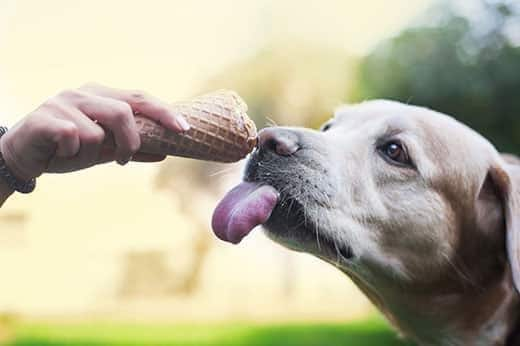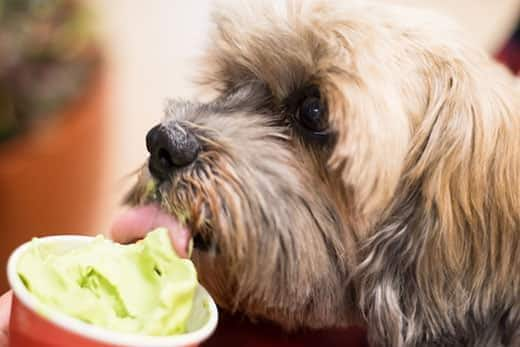
-
Find the right food for your petTake this quiz to see which food may be the best for your furry friend.Find the right food for your petTake this quiz to see which food may be the best for your furry friend.Health CategoryFeatured products
 Adult 7+ Small Bites Chicken Meal, Barley & Rice Recipe Dog Food
Adult 7+ Small Bites Chicken Meal, Barley & Rice Recipe Dog FoodSupports energy level and beautiful coat in mature dogs who prefer smaller kibble
Shop Now Adult Oral Care Small & Mini Chicken, Rice & Barley Recipe Dog Food
Adult Oral Care Small & Mini Chicken, Rice & Barley Recipe Dog FoodClinically proven kibble technology to reduce plaque & tartar build-up, specially designed for small & mini dogs
Shop Now Adult Small Bites Chicken & Barley Recipe Dog Food
Adult Small Bites Chicken & Barley Recipe Dog FoodSupports lean muscle for dogs who prefer smaller kibble
Shop NowFeatured products Adult Chicken & Spinach Casserole Cat Food
Adult Chicken & Spinach Casserole Cat FoodWith delicious chunks in a decadent gravy
Shop Now Adult 7+ Tender Tuna Dinner Cat Food
Adult 7+ Tender Tuna Dinner Cat FoodWith delicious chunks in a decadent gravy
Shop Now Sensitive Stomach & Skin Chicken & Beef Dinner
Sensitive Stomach & Skin Chicken & Beef DinnerGourmet daily nutrition, carefully made. Tasty chunks with chicken & beef in a decadent gravy. Supports digestive health, nourishes skin and promotes a lustrous fur.
Shop Now -
DogCat
- Cat Tips & Articles
-
Health Category
- Weight
- Skin & Food Sensitivities
- Urinary
- Digestive
- Kidney
- Dental
- Serious Illness
-
Life Stage
- Kitten Nutrition
- Adult Nutrition
Featured articlesHill's Australian Bushfire EffortsRead More Pet Food Storage Tips
Pet Food Storage TipsWhere you store your cat and dog food can make a big difference in the quality and freshness once it is opened. Here are some common questions and recommendations for optimal storage for all of Hill’s dry and canned cat and dog food.
Read More Water
WaterWater is the most important nutrient of all and essential for life. Animals can lose almost all their fat and half their protein and still survive, but if they lose 15% of their water, it will mean death.
Read More -


Dogs eating ice cream: It just sounds right! Your dog loves yummy treats, so you're sure he'd love a lick of soft serve when it's hot outside. But, is it bad for them, or can dogs eat ice cream safely? The truth is, as cute as it seems to share your dessert with your fluffy friend, it's best to keep your dog far away from any ice cream. Here are the two main reasons why ice cream can be bad for dogs:
1. Dogs Don't Digest Milk Well
Humans aren't the only species that are sensitive to dairy. Eating ice cream may cause your dog a stomach ache or worse, depending on how sensitive they are.
Ice cream can cause your dog gas, bloating, constipation, diarrhoea or vomiting.
Remember, your dog can't voice their concerns to you, so while they might look OK on the outside, they could be experiencing some major digestive issues on the inside. No one wants their beloved pet to suffer in silence!
2. There's Too Much Sugar In Ice Cream
Sugar is also bad for your pooch. The sugar in ice cream can cause your dog to gain weight, and being overweight can lead to other health problems. You might think one scoop can't hurt, but think of how many calories your pet consumes in a day. What may feel like a small treat to you could contain more than a day's worth of calories for your dog.


Tasty Tips
3. Ice Cream Can Contain Ingredients Toxic to Dogs
Some ice creams include xylitol, a sweetener that's poisonous to dogs. Ice cream can also contain additional ingredients that have xylitol in them, like peanut butter and some candies.
Chocolate ice cream and chocolate toppings, like chocolate sauce and chocolate chips, present additional dangers since chocolate can be toxic for dogs, too. And rum raisin ice cream is off-limits because raisins are also poisonous for pups.
There are far too many health risks involved to feed your dog ice cream — even if it's just a lick.
Dog-Friendly Ice Cream Alternatives

Don't despair! If you're an ice cream aficionado, you can still share the joy of eating a frozen treat with your pet.
If you're interested in making homemade alternatives, there are a few options. Banana "ice cream" is a yummy, simple treat: Just freeze bananas and blend them. You can also add apples, pumpkin or dog-safe peanut butter to the mix. Another option is to freeze plain apple sauce and pumpkin puree in silicone moulds for a treat that's a little more like an ice pop than ice cream. If you're short on time, dogs actually love plain ice cubes too; they're great treats with no additional calories. Just make sure to not go overboard in case your dog might get brain freeze.
If you'd prefer to go the store-bought route, many grocery stores sell pet-safe ice cream in their frozen foods section. Most of these ice creams are just as safe as homemade treats, but it's always best to read the labels. Some ice creams for dogs contain yogurt, which your dog might tolerate better than milk or cream since it has less lactose. It's usually safest to stick to non-dairy treats. Always make sure to talk to your veterinarian before giving anything to your dog.
Can dogs eat ice cream? They can't eat the same kind you eat, but there are plenty of frozen, pet-safe sweets they can enjoy. The idea of dogs eating ice cream might sound cute, but the sick pet that could result is no laughing matter. On the bright side, no ice cream for Fido means more ice cream for you!


One of our staff authors prepared this article for you
Related products

Supports energy level and beautiful coat in mature dogs who prefer smaller kibble

Supports healthy joints, lean muscle, and beautiful coat for large breed dogs

Clinically proven kibble technology to reduce plaque & tartar build-up, specially designed for small & mini dogs

Supports lean muscle for dogs who prefer smaller kibble
Related articles

As small and toy breed dogs age, their nutritional needs change.

Learn how today's wet dog food blends have gotten a face lift, and how you'll provide your dog the nutrition he needs in the form he loves.

Extra pounds can cause problems for your dog's overall health. Learn the signs that your dog might be overweight, and what you can do to manage its weight.

Selecting the right food for your puppy is a key to quality nutrition and a long, healthy life., Learn more about how to select the right puppy food.

Put your dog on a diet without them knowing
Our low calorie formula helps you control your dog's weight. It's packed with high-quality protein for building lean muscles, and made with purposeful ingredients for a flavorful, nutritious meal. Clinically proven antioxidants, Vitamin C+E, help promote a healthy immune system.
Put your dog on a diet without them knowing
Our low calorie formula helps you control your dog's weight. It's packed with high-quality protein for building lean muscles, and made with purposeful ingredients for a flavorful, nutritious meal. Clinically proven antioxidants, Vitamin C+E, help promote a healthy immune system.

